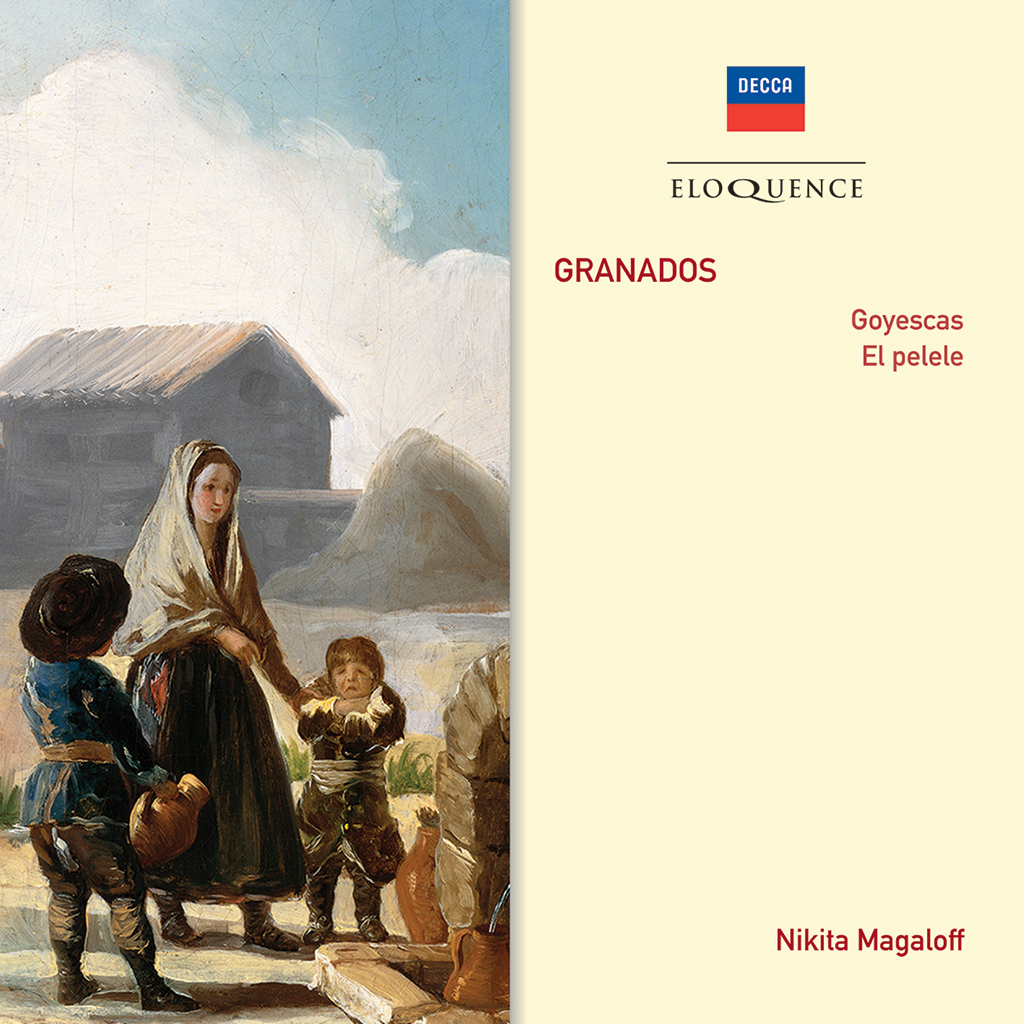The two books of ‘Goyescas’ constitute Granados’ best and most durable as well as his best-known, music. Subtitled ‘Los majos enamorados’ (Young men in love), they are highly imaginative transcriptions into music of the tapestries and pictures of Francisco Goya (1746-1828), the wild and demonic genius who with Velasquez is usually thought of as one of the great exemplars of Spanish painting. They were completed in 1911 and first performed by Granados himself in Barcelona on 9th March that year. Publication in 1914 was in two books, the first four pieces in one and the remaining two in a second. Each of the ‘Goyecas’ has a different dedication: the best-known of them, ‘Quejas ó la Maya y el Ruiseñor’, Granados inscribed to his wife Amparo; the others are to the pianists Emil [von] Sauer, Édouard Risler, Ricardo Viñes, Harold Bauer and Alfred Cortot respectively.
Released to mark the centenary of the Georgian-born pianist, Nikita Magaloff’s birth, these recordings were made over two periods in Geneva’s Victoria Hall (a hallowed Decca recording venue) – in November 1952 (Book I and ‘El pelele’) and October/November 1954 (Book II). This is their first release on Decca CD. Lyndon Jenkins wrote the excellent sleeve notes.
ENRIQUE GRANADOS
Goyescas
El pelele
Nikita Magaloff, piano
FIRST RELEASE ON CD
Recording Producer: Victor Olof
Balance Engineers: Arthur Haddy (Goyescas: Book I, El pelele); Roy Wallace, Gil Went (Goyescas: Book II)
Recording Location: Victoria Hall, Geneva, Switzerland, November 1952 (Goyescas: Book I, El pelele), October-November 1954 (Goyescas: Book II)
‘The Goyescas are an exhibition of fine manners, and it is as such that Nikita Magaloff plays them. His dexterity, the clarity of his decorations, the subtle variety of his rhythms, are a delight to listen to; and the recording does him full justice.’ The Record Guide (1955)
‘flowing lyrical quality … rhythmic vitality and intensity’ (Goyescas: Book I) Gramophone
‘these are magical creations, intimate and evocative, and Mr. Magaloff plays them with a sensitiveness that rises to quiet nobility in the middle section of El amor y el muerte (the coda to this piece quotes a longish section of the much better known Lover and the Nightingale). The recording is first-rate.” (Goyescas: Book II) Gramophone

